Nine faculty received the 2014 George R. Brown Award for Superior Teaching, which honors top Rice professors as determined by the votes of alumni who graduated within the past two to five years. Below are the recipients and their comments about the most important lesson they hope their students will remember five years after graduation.
Michel Achard, associate professor of linguistics and French studies and chair of the Department of Linguistics
“Five years after graduation, I hope my students will have retained their sense of wonderment at the incredible social and cognitive diversity of language. When they observe people around them expressing their feelings and accomplishing their daily activities through words, I would like them to remember that language represents our own human way of using highly specific cognitive resources to think and share a large and complex world, and view its flexibility and resiliency as a testimony to human creativity.”
Lisa Balabanlilar, assistant professor of history
“I have learned that Rice students can be generally distinguished from their peers for their willing devotion to academic exploration. I would wish for them that five years — or 25 years and more — after they leave Rice and the academic setting, that they pursue intellectual inquiry with the same level of excitement and enthusiasm.”
Margaret Beier, associate professor of psychology
“I hope students remember that learning continues through life and that it requires that they pay attention and remain curious. Lifelong learning takes time and effort, and I hope they continue to evaluate how they invest this effort — doing engaging work, developing networks of smart and interesting people and getting involved in their communities. They have so much to offer!”
Jenifer Bratter, associate professor of sociology
“Ultimately, my hope is that people will find research exciting and important, but also accessible. In my mind, if you don’t connect with the material, you can’t absorb it. Because what I teach mostly is statistics, my goal is for students to see statistics as a language they can master and use themselves — not a monster in the closet they have to avoid. Hopefully, I would like them to think a little differently. But mostly I would love them to critique what they already know and understand it in a broader way. Honestly, I want them to look back and LOVE sociology and LOVE research.”
Steven Cox, professor of computational and applied mathematics
“That the world, and our place in it, is knowable and that mathematics provides deep and rewarding access to these mysteries — and that we should not take ourselves too seriously.”
Jane Grande-Allen, professor of bioengineering
“I have no idea how I can have a single most important lesson. I’ve taught five very different courses over the last five years, and I got so much out of every one of them. I think that my lessons would be: (1) Follow up on the questions asked by your inner skeptic; (2) Always ask questions in class — that makes the course better; (3) The mechanical behavior of biological tissues is dictated by the composition AND orientation of extracellular matrix; and (4) It’s hard to go wrong using a numerical method named after Newton.”
Mikki Hebl, professor of psychology and management
“I hope students remember to use the content they have learned to make the world a better place and pay it forward to the next generation. In social psychology, that includes intervening as a bystander when people need help, trying to be inclusive to outgroup members, realizing the power of the situation and working as allies to remediate discrimination. In psychology of gender, it includes taking arms against the crazy media machinery that objectifies women (and men), working to change power structures within organizations and our culture that restrict gender equity and helping women and men to be less constrained by traditional gender roles. For research methods, that includes critical thinking and analysis about the inordinate amount of statistics one is presented with on a daily basis, the importance of and delight in observing and asking questions about behavioral phenomena and the marvelous power of empirical research.”
Renata Ramos, lecturer in bioengineering
“Every year I’m surprised by how many amazing students I meet. I am sure they’ll go off to do great things, and I hope that after they graduate they remember that it’s never too late to learn something new and that they should not be afraid of failing. I always tell my students that college is a safe place to learn; I hope they continue to do this after they leave Rice.”
Rebecca Richards-Kortum, the Stanley C. Moore Professor of Bioengineering and professor of electrical and computer engineering and chair of the Department of Bioengineering
“My grandmother used to tell me, ‘It takes a carpenter to build a barn, but any jackass can knock it down.’ I hope they will remember to be the carpenter. I want them to remember that they have the knowledge and skills to illuminate the most challenging problems, and that it is in their power to inspire and engage the people around them to find solutions.”
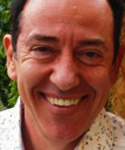
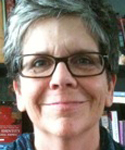

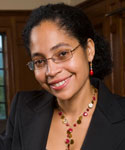

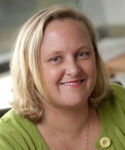
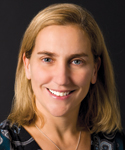




Leave a Reply